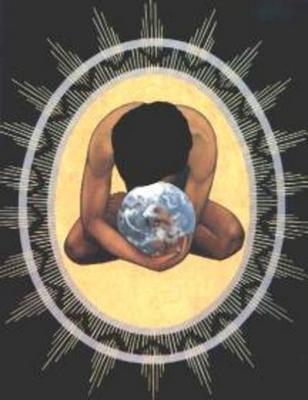
In spite of our conscious desire to love ourselves, we nonetheless are mired emotionally in ways that cause us to doubt, reject, criticize, and even hate ourselves. Before we can truly accept and love ourselves as we are, we need to acknowledge and experience the ways we are identified with a limited and negative sense of ourselves.
One major barrier to loving ourselves is our unconscious identification with the negative attributes of our parents and other forms of childhood conditioning. Our notion of self, who we are, erroneously rests upon our assumptions and perceptions of our parents' actions, traits, beliefs, feelings, and attributes. In childhood, these aspects are absorbed into our being, forming the structure for our notion of who we are. In other words, we become like our parents and treat ourselves the same way our parents treated us. Here are some examples.
We perceived:
- that our parents did not want us to be real, say what we felt or thought, or act according to our inner instincts or impulses. As adults, we repress and thwart our spontaneous genuine feelings, thoughts, and actions.
- that our parents did not want us to be happy, take pleasure in our bodies, laugh, feel good about ourselves. As adults, such behaviors are regarded as bad and we suppress them.
- that we were being used to gratify our parents' needs at our own expense. Now we gratify the needs or demands of others at our own expense.
- that we were being neglected, discounted, dismissed, and ignored. Consequently, as adults we neglect, discount, and ignore ourselves.
- that we were being critically assessed, forced to prove our worth, and required to perform according to their expectations. As adults, we critically assess ourselves, feel the need to prove our worth, and perform according to our own impossible expectations.
As a result of these perceptions, we experience being real, being who we are, feeling good about ourselves, as loss and abandonment of those we love. These negative impressions lead us to feel unloved or even hated, and these feelings are then directed toward ourselves.
Feeling loved and being real produces:
- Guilt over the misperception that loving ourselves and being true to ourself will hurt, betray, and deprive others, and cause them unhappiness. In fact, it will enhance their evolvement and connection to their own self, resulting in their happiness and well-being.
- Feelings of criticism, negative judgment, and the expectation of condemnation from society, our loved ones, and even ourselves for discarding our social norms and traditional role. It feels that we risk ostracism, hatred, ridicule, and mockery when, in fact, from within ourselves we will feel praise, honor, and joy for transcending the personal and collective norms and embracing ourselves.
- Shame and self-condemnation for pursuing the forbidden pleasures of love, bliss, joy, total health, and well-being. This violates personal, parental, and social injunctions against feeling pleasure in ourselves and satisfaction with what we have and with who we are.
- Feelings of being vain and egotistical. We are not comfortable validating our strengths, talents, and abilities, taking pleasure in our creative ideas and feelings, praising ourselves, seeing ourselves as good and worthy. It may be more familiar to see ourselves as worthless sinners in need of salvation.
- Resistance to letting go of our identification with pain and suffering. We perceived that our parents were mired in hurt, pain, and feelings of being victimized, and that is how we believed we were supposed to experience life, as opposed to identifying ourselves with the bliss, joy and unconditional love of our true self.
- Fear of letting go of our need to rebel against external forms of power and authority in order to maintain an illusion of our own power and authority. That illusion is based on feelings of powerlessness and distrust that arose in the process of losing our sense of self in childhood, through capitulation to parental and social authority.
Loving ourselves represents the unknown. We are not familiar with love and how it feels to be loved or what is involved in being loved or loving others. Love is experienced as an unknown, correlated with loss, impending hurt, and destruction, as opposed to gain, happiness, well-being, and new life.
Having lost our sense of trust and security in ourselves, we place our value and security in possessions, attitudes, and behaviors. Examples include our emotional dependence on money, sex, status, work, status of partner and friends, perfection ideals, good deeds, group validation, exceptional children, a perfect house, caretaking of others, promotion of others, completing tasks on our list, agreement for our ideas and beliefs, and reducing others as less than (minorities, women, children, etc.)
Having lost our sense of trust and security in ourselves, we become attached to feeling controlled, restricted, and directed by outside sources of power and authority. We give up our personal power to our parents, spouses, friends, psychics, healers, as opposed to acknowledging ourselves and our own intuitive knowing as the ultimate source of power and authority.
We resist loving ourselves due to feelings of regret and a lack of forgiveness for having rejected, discarded, desexualized, and destroyed ourselves in the past, based on erroneous childhood perceptions of being at fault and because we direct at ourselves the conviction of our badness that was absorbed in the course of our childhood conditioning.
Acknowledging our goodness, taking fun and pleasure in ourselves, in our lives, and being real
by Sandra Michaelson
No comments:
Post a Comment